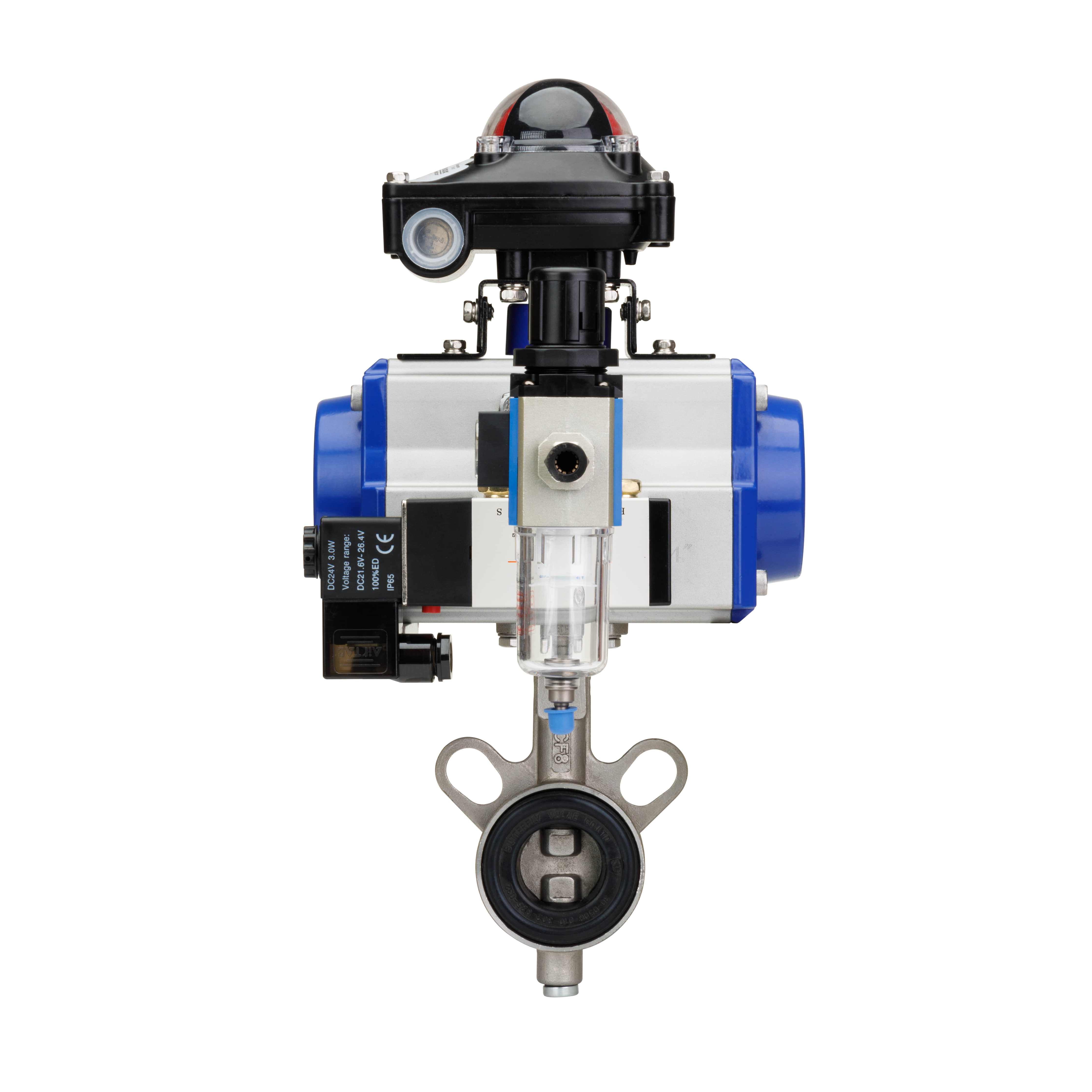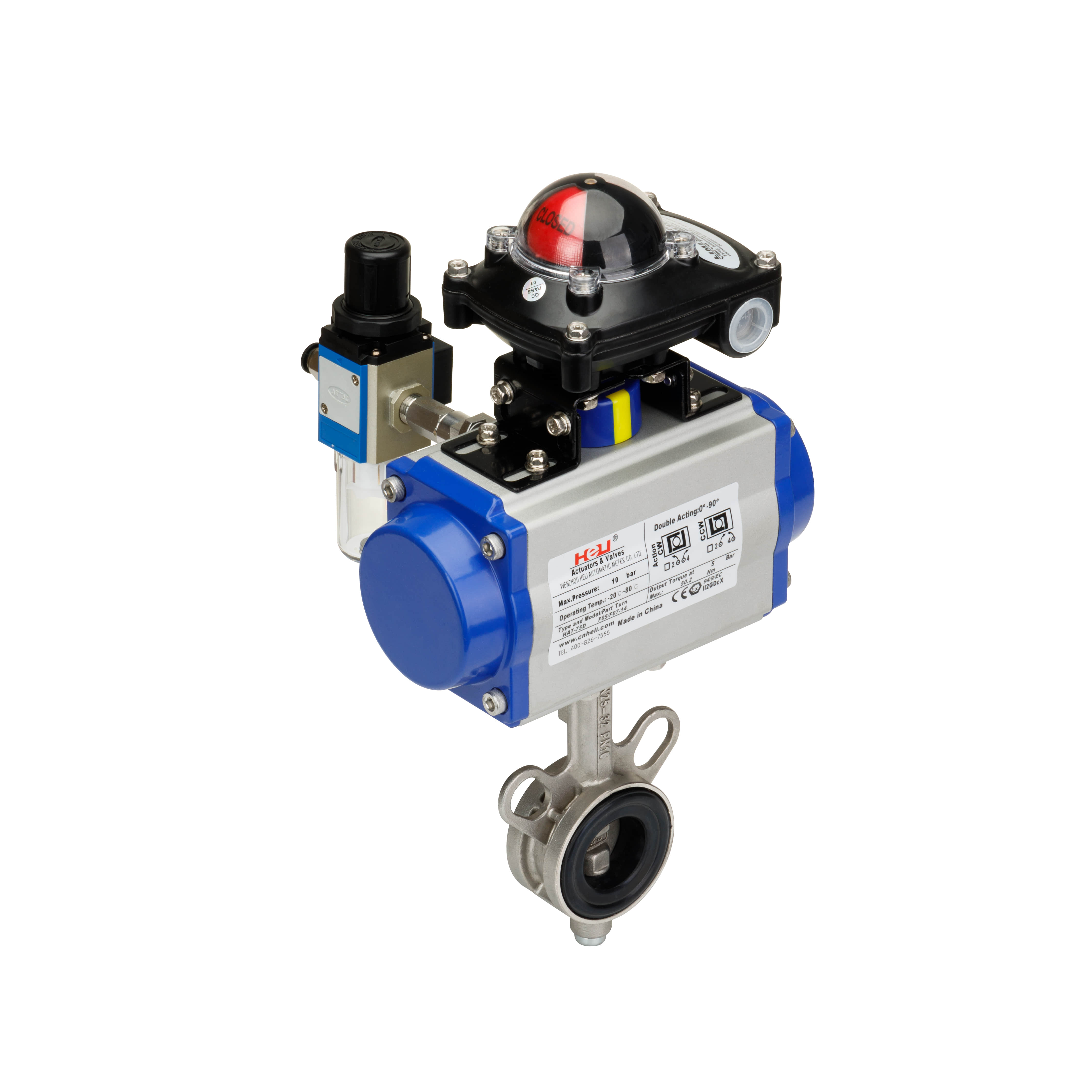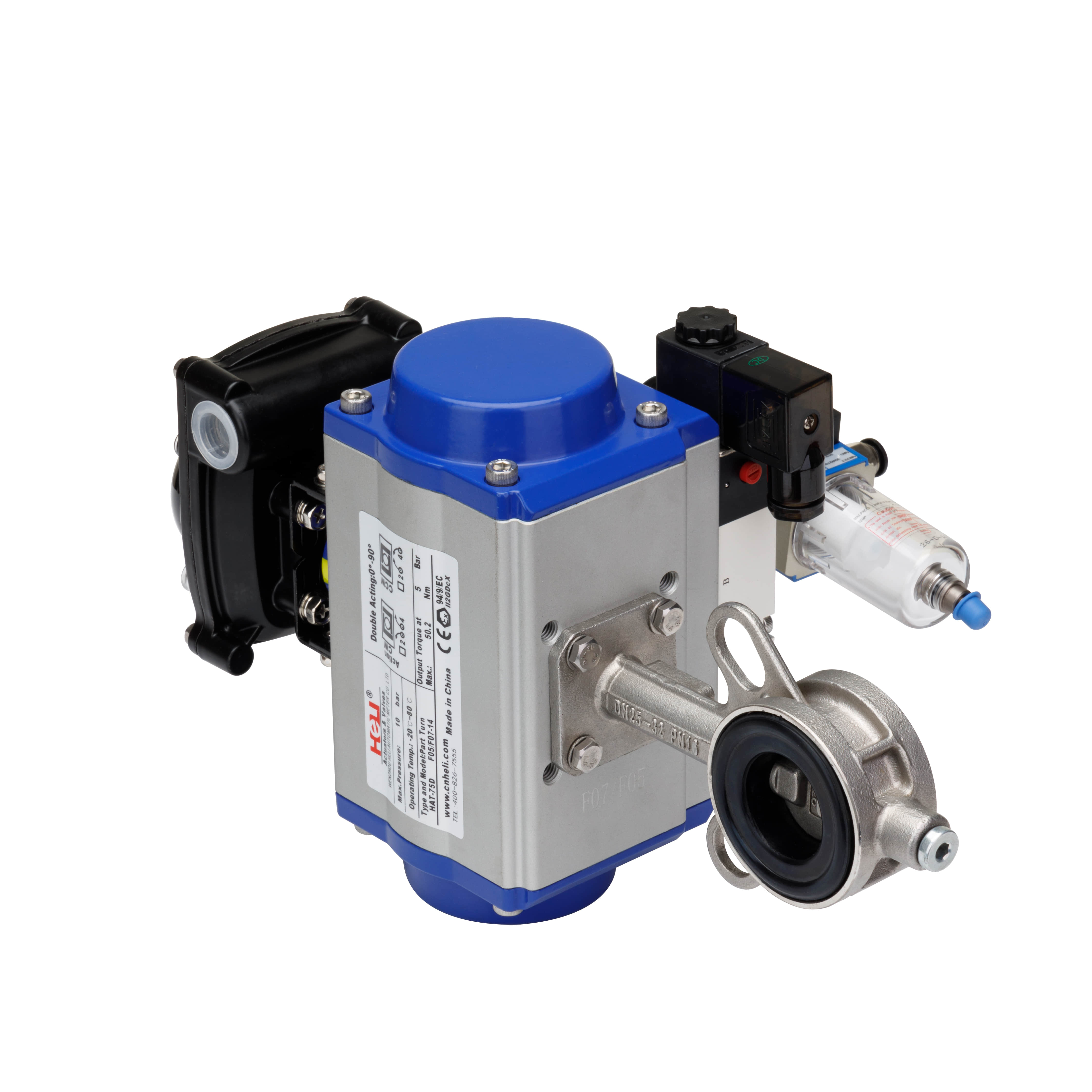understanding pneumatic butterfly valves: an essential component in fluid control
Release time:2025-01-22 04:46:57
Pneumatic butterfly valves are crucial devices widely used in various industries for controlling fluid flow. These valves are designed to offer precise control, reliability, and efficiency, making them ideal for applications ranging from water treatment to chemical processing. This article delves into the anatomy, working principles, advantages, applications, and maintenance of pneumatic butterfly valves.

Anatomy and Working Principle

A pneumatic butterfly valve consists of a circular disc or "butterfly" mounted on a rotating shaft. The disc is positioned within the pipe and can be rotated either parallel or perpendicular to the flow direction. When the disc is parallel to the flow, the valve is in the open position, allowing fluid to pass through. Conversely, when the disc is turned perpendicular to the flow, the valve is closed, stopping the fluid movement.




